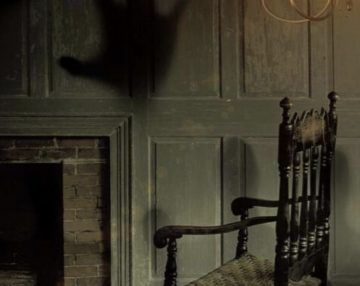David Livingstone Smith in IAI News:
 “What would your feelings be,” asks Ambrose in Arthur Machen’s novel The House of Souls, “… if your cat or your dog began to talk to you, and to dispute with you in human accents?” He goes on:
“What would your feelings be,” asks Ambrose in Arthur Machen’s novel The House of Souls, “… if your cat or your dog began to talk to you, and to dispute with you in human accents?” He goes on:
You would be overwhelmed with horror. I am sure of it. And if the roses in your garden sang a weird song, you would go mad. And suppose the stones in the road began to swell and grow before your eyes, and if the pebble that you noticed at night had shot out stony blossoms in the morning?
Machen’s examples are disturbing, but it’s not immediately obvious why. It’s not that they’re frightening, at least not in the ordinary sense of the word. Normally, we’re scared of things because we think they pose a physical danger to us, but singing roses don’t pose any such hazard, so why is the thought of them so nightmarish?
Notice that Machen said that if you encountered a singing rose you would be overwhelmed with horror rather than fear. Fear is a primitive emotional response—an instinctive reaction to perceived danger that we share with other mammals. But horror is a uniquely human state of mind that depends on sophisticated cognitive capacities of a sort that only human beings possess.
More here.
